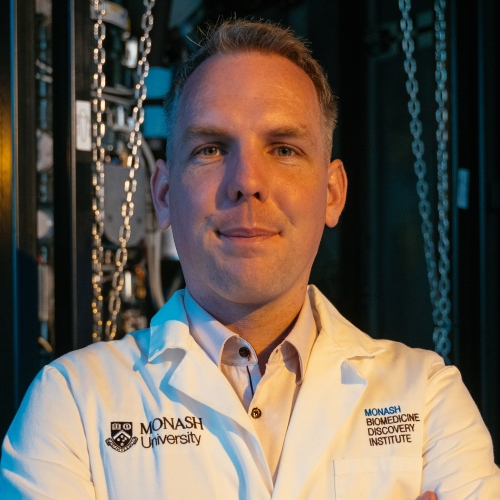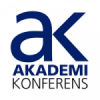17th International Symposium on Applied Bioinorganic Chemistry
15-18 June 2025, Uppsala Sweden
Plenary Speakers
Prof. Christopher J. Chang
UC Berkeley, USA
Christopher J. Chang was born in Ames, Iowa, in 1974. He received his B.S. and M.S. from Caltech in 1997, working with Professor Harry Gray on the electronic structures of metal−nitrido and metal−oxo salen complexes. He then spent a year as a Fulbright scholar with Dr. Jean-Pierre Sauvage at the Université Louis Pasteur studying chem…
Read the full biography
Christopher J. Chang was born in Ames, Iowa, in 1974. He received his B.S. and M.S. from Caltech in 1997, working with Professor Harry Gray on the electronic structures of metal−nitrido and metal−oxo salen complexes. He then spent a year as a Fulbright scholar with Dr. Jean-Pierre Sauvage at the Université Louis Pasteur studying chemical topology and molecular machines. Chris then attended the Massachusetts Institute of Technology (MIT) as an NSF and Merck graduate fellow and completed his Ph.D. in 2002 with Professor Dan Nocera, where his thesis work focused proton-coupled electron transfer as a mechanistic platform for developing catalytic oxygen reduction and evolution reactions. He subsequently performed his postdoctoral studies with Professor Steve Lippard at MIT as a Jane Coffins Childs postdoctoral fellow where he developed methods for zinc sensing for applications in neuroscience. He began his independent career at UC Berkeley in 2004 where his laboratory now focusses on the study of transition metals, redox-active molecules, and one-carbon metabolites in biology and energy, accomplished through the development of activity-based sensors, proteomics probes, and molecular catalysts and applying them to investigate questions related to neuroscience, cancer, metabolism, and sustainable synthesis. In 2024, Chris will move to Princeton University as the Edward and Virginia Taylor Professor of Bioorganic Chemistry.
Prof. Serena DeBeer
Mülheim an der Ruhr, Germany
Serena DeBeer is a Professor and Director at the Max Planck Institute for Chemical Energy Conversion in Mülheim an der Ruhr, Germany. She is also an Adjunct Professor in the Department of Chemistry and Chemical Biology at Cornell University, an honorary faculty member at Ruhr University in Bochum, and the grou…
Read the full biography
Serena DeBeer is a Professor and Director at the Max Planck Institute for Chemical Energy Conversion in Mülheim an der Ruhr, Germany. She is also an Adjunct Professor in the Department of Chemistry and Chemical Biology at Cornell University, an honorary faculty member at Ruhr University in Bochum, and the group leader of the PINK Beamline at the Energy Materials In‐Situ Laboratory at Helmholtz Zentrum in Berlin. She received her B.S. in Chemistry at Southwestern University in 1995 and her Ph.D. from Stanford University in 2002. From 2002-2009, she was a staff scientist at the Stanford Synchrotron Radiation Laboratory, before moving to her faculty position at Cornell. She is the recipient of a European Research Council Synergy Award (2019), the American Chemical Society Inorganic Chemistry Lectureship Award (2016), the Society of Biological Inorganic Chemistry Early Career Award (2015), a European Research Council Consolidator Award (2013), a Kavli Fellowship (2012), and an Alfred P. Sloan Research Fellowship (2011). Research in the DeBeer group is focused on the development and application of advanced X-ray spectroscopic tools for understanding key mechanisms in biological, homogeneous and heterogeneous catalysis.
Prof. Abhishek Dey
School of Chemical Sciences
Indian Association of the cultivation of Science, India
Abhishek obtained his undergraduate degree from the Presidency College, Calcutta and his PhD from Stanford University, CA, USA. He joined IACS in June 2009 as an Assistant Professor and is currently serving as a Professor at the same department. He is the recipient of the American Chemical Society Division of Inorganic Chemistry Young Investigator Award, Society of Por…
Read the full biography
Abhishek obtained his undergraduate degree from the Presidency College, Calcutta and his PhD from Stanford University, CA, USA. He joined IACS in June 2009 as an Assistant Professor and is currently serving as a Professor at the same department. He is the recipient of the American Chemical Society Division of Inorganic Chemistry Young Investigator Award, Society of Porphyrin and Pthalocyanine Young Investigator Award and Society of Biological Inorganic Chemistry Emerging Investigator Award. He has been an Young Associate of the Indian Academy of Science, a CRSI Bronze medal awardee and a SERB-STAR fellow. His current area of research involves development of homogeneous and heterogeneous catalysts for sustainable energy and clean environment. A combination of synthesis, self-assembly, spectroscopy, electrochemistry and electronic structure calculations are used to attain these research goals. He has served the international editorial advisory boards of Chemical Reviews, Chemical Communications, Inorganic Chemistry, Journal of Biological Inorganic Chemistry and ACS Catalysis. Currently he is an associate editor of ACS Catalysis. He has been elected Fellow of the Indian Academy of Science, Bangalore and fellow of The National Academy of Science, India. He is serving as the elected president of Asian Biological Inorganic Chemistry (AsBIC).
Prof. Chris Greening
Monash University , Australia
Professor Chris Greening investigates the enzymes and microbes responsible for the cycling of atmospheric trace gases such as hydrogen, methane, and carbon monoxide. Following a first-class degree in Molecular and Cellular Biochemistry at the University of Oxford (2010), Chris completed a doctorate at the University of Otago (2014) investigating the physiological roles of the hydrogenases in mycoba…
Read the full biography
Professor Chris Greening investigates the enzymes and microbes responsible for the cycling of atmospheric trace gases such as hydrogen, methane, and carbon monoxide. Following a first-class degree in Molecular and Cellular Biochemistry at the University of Oxford (2010), Chris completed a doctorate at the University of Otago (2014) investigating the physiological roles of the hydrogenases in mycobacteria, before gaining postdoctoral experience in enzymatic biocatalysis and bioremediation at CSIRO. In 2016, he was appointed as a group leader in Monash University’s School of Biological Sciences and completed an environmentally-focused ARC DECRA Fellowship. In 2020, he moved to Monash’s Department of Microbiology to take up a medically-focused NHMRC EL2 Fellowship. Among his discoveries are high-affinity [NiFe]-hydrogenases and [MoCu]-carbon monoxide dehydrogenase that allow microbes to live on air; he and collaborators have extensively characterised these enzymes through kinetic, structural, spectroscopic, electrochemical, and theoretical analyses. Chris has published over 120 publications mostly in top journals and partnered extensively with large-scale intervention programs and diverse industrial organisations. In 2023, he was awarded the Prime Minister’s Prize for Life Scientist of the Year.
Prof. Christelle Hureau
Coordination Chemistry lab, France
Christelle Hureau is the head of the “Alzheimer, Amyloids and Bio-Inorganic Chemistry (ALAMBIC)” team at the Coordination Chemistry Lab in Toulouse · She did her PhD in Orsay (France) on the coordination chemi…
Read the full biography
Christelle Hureau is the head of the “Alzheimer, Amyloids and Bio-Inorganic Chemistry (ALAMBIC, https://hureaulab.wixsite.com/equipeflcc)” team at the Coordination Chemistry Lab in Toulouse · She did her PhD in Orsay (France) on the coordination chemistry of Mn-based structural models of the water-oxidizing centre in the Photosystem II and graduated in 2003. Then she made three post-docs at the frontier between chemistry, biochemistry and advanced spectroscopy and electrochemistry · She is interested in the impact of metallic ions in Alzheimer’s disease (AD) and other amyloid-related diseases, in the design and study of new drug candidates selectively targeting copper ions and of inorganic compounds able to tune the self-assembly of the Aβ peptide involved in AD.
Dr. Junko Yano
Lawrence Berkeley National Laboratory, Usa
Dr. Yano is a Senior Scientist at Lawrence Berkeley National Laboratory, and the Division Director of the Molecular Biophysics and Integrated Bioimaging Division in the Biosciences Area. She is also a co-principal investigator of the Liquid Sunlight Allian…
Read the full biography
Dr. Yano is a Senior Scientist at Lawrence Berkeley National Laboratory, and the Division Director of the Molecular Biophysics and Integrated Bioimaging Division in the Biosciences Area. She is also a co-principal investigator of the Liquid Sunlight Alliance (LiSA), one of the Fuels from Sunlight Energy Innovation Hub funded by US Department of Energy. Her research areas include the water oxidation in natural photosynthesis and artificial photosynthesis, catalytic reactions in metalloenzymes, application of synchrotron X-ray radiation and X-ray free electron laser techniques to biological and inorganic systems.
Prof. Pernilla Wittung-Stafshede
Chalmers University of Technology, Sweden
Pernilla Wittung-Stafshede is a Professor at the Life Sciences Department at Chalmers University of Technology in Gothenburg, Sweden. Her research centers around biophysical studies of protein folding, misfolding and interactions. She has made pioneering discoveries around the role of metals in protein folding, macr…
Read the full biography
Pernilla Wittung-Stafshede is a Professor at the Life Sciences Department at Chalmers University of Technology in Gothenburg, Sweden. Her research centers around biophysical studies of protein folding, misfolding and interactions. She has made pioneering discoveries around the role of metals in protein folding, macromolecular crowding effects on folding reactions, as well as on mechanisms of copper-transport proteins. After a PhD in physical chemistry in 1996, she did a postdoc at California Institute of Technology. In 1999, her independent career started at Tulane University, New Orleans. She received tenure and was promoted to associate professor in 2002. In 2004 she moved to Rice University, Houston. Wittung-Stafshede returned to Sweden in 2008 to a professor position at Umeå University. She transferred to Chalmers in 2015 to the then newly-founded Life Sciences department.
Wittung-Stafshede’s current research focus is directed towards roles of copper transport proteins in cancer processes and cross-reactivity between amyloidogenic proteins, as well as between such proteins and metals, in neurodegenerative diseases. She has received numerous awards for her pioneering work. She is a member of the Royal Swedish Academy of the Sciences and the Royal Swedish Academy of Engineering Sciences. In 2020 she joined the Nobel Prize in Chemistry committee. Wittung-Stafshede has published over 265 peer-reviewed scientific articles and over 50 popular texts.
In 2019, Wittung-Stafshede obtained funding for a large gender equality program named Genie (Gender Initiative for Excellence) at her university; she acted Genie leader during the first four years. Over the years, she has become a spokesperson for gender equality, in Sweden and internationally.
Prof. Jun-Long Zhang
Peking University, China
Jun-Long Zhang received his BSc from Sichuan University (1997), MSc from Chengdu Institute of Organic Chemistry, Chinese Academy of Sciences (2000), and a PhD from the University of Hong Kong. After postdoctoral research at the University of Illinois at Urbana-Champaign, he started his ind…
Read the full biography
Jun-Long Zhang received his BSc from Sichuan University (1997), MSc from Chengdu Institute of Organic Chemistry, Chinese Academy of Sciences (2000), and a PhD from the University of Hong Kong. After postdoctoral research at the University of Illinois at Urbana-Champaign, he started his independent academic career at Peking University and now is a full professor.
His research area is bioinorganic chemistry, a cross-cutting field that focused on the spin conserving during oxygen metabolism and proposed the spin triangle to re-classify oxygen metabolites which provides a new vision for understanding and harnessing metals in biological processes. Recently, Jun-Long extended the spin modulation of oxygen metabolism by the magnetic field according to the radical pair mechanism of bird magnetoception beyond traditional molecular engineering. Jun-Long have received several honors, including a Wiley-ACES Excellent Young Professor Award, a Distinguished Lectureship Award (Chemical Society of Japan), being named an Emerging Investigator in Bioinorganic Chemistry (American Chemical Society), the Distinguished Lectureship Award by the Chemical Society of Japan, Wiley-ACES Excellent Young Professor Award and a Chemistry Europe Early Career Award. He was the winner of the inaugural AsBIC James Hoeschele Award (2020).
Important dates
Autumn 2024: Abstract submission opens
Early 2025: Opening of registration
Spring 2025: Notification of abstract acceptance
Spring 2025: Early bird deadline for registration
15-18 June: ISABC 2025 Conference
Organised by

Molecule image: Lydia Simmons via freepngimg.com









